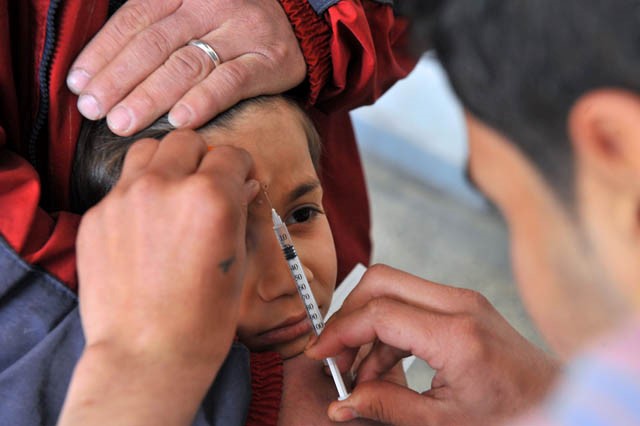
New research shows Leishmaniasis is a disease of marginalised communities
Leishmaniasis one of the world’s oldest diseases is a growing, but neglected disease.
The new Leishmaniasis Gap Analysis Report and Action Plan is based on research carried out in Albania, Jordan and Pakistan during 2015. It shows that leishmaniasis continues to be a neglected disease even though it has a worldwide prevalence and disastrous impact on the lives of millions. Leishmaniasis mainly affects impoverished communities, living in poor conditions, without adequate access to shelter, healthcare and medication.
See here for a summary of the full research Leishmaniasis Gap Analysis summary report.
The analysis, funded by the Bill & Melinda Gates Foundation, was carried out by the South East European and Middle Eastern CORDS Networks alongside Pak One Health.
Leishmaniasis, spread by sandflies, takes two forms, cutaneous, which can lead to distressing and disfiguring skin ulcers and scarring, and visceral Leishmaniasis, which affects organs such as the liver and spleen, and can be fatal if not treated. Over 40,000 people die from the disease every year.
The research found that Leishmaniasis is highly correlated with poverty, malnutrition and other diseases which affect immunity, as well as factors such as crowded living conditions and poor sanitation. It was also found that Leishmaniasis has been ignored largely because of its association with poverty and the limited capacity of governments and aid agencies to deal with its complex epidemiology.
Professor Nigel Lightfoot, CORDS Executive Director, said: “Our goal is to raise awareness about the millions of people suffering from Leishmaniasis, and address barriers to its treatment and prevention. We need more action, more funding and a stronger political commitment to end the needless suffering of millions.”
One area that urgently needs to be addressed is for Governments in Albania, Pakistan, Jordan and other affected countries to change their regulations to enable the registration and importation of anti-leishmanial drugs into their countries.
